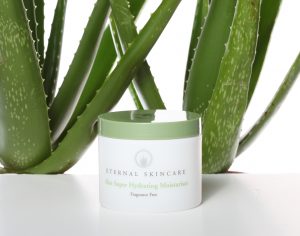Don’t let the changing seasons wreak havoc on skin – Crisp mornings, leaves changing colour, winter woollies coming out of the wardrobe and a comforting mug of hot chocolate, there’s plenty to enjoy about the seasonal switchover. At this time of year, the changing weather and temperature mean skin will go through changes too.
Just as you begin layering up your clothing, you should also be thinking about adding nourishing layers of moisturiser to your skin to protect it from drying out in colder weather. Chapped lips and hands, along with dry skin on the face, are uncomfortable and can look unsightly. Dry skin can even lead to eczema break-outs – an itchy horror that no one wants to experience in the run-up to Christmas.

Here, Fay Watt from natural skincare company Eternal Skincare, gives his top tips on how to adjust your skincare routine for the new season.
How the changing seasons affect our skin
Skin is a big fan of stability, which is why as the seasons change and the weather heats up or in this case cools down, its barrier is affected. This means skin must work harder to battle the cold and wind, and becomes more susceptible to irritations, as Fay explains:
“As skin becomes more sensitive, it will start to feel drier and duller. This can cause visible irritations, such as blotchiness and cracks on the skin across your whole body, and there is a risk these cracks could allow bacteria to enter your body and cause infections.”
Fay’s advice is . . .
You are what you eat!
Tempting as it is to indulge in carb and sugar-heavy treats during the colder months, try to limit the comfort snacks and eat plenty of skin-friendly foods. These include salmon, almonds, eggs and most brightly coloured fruit and veg.
Drink for victory
Staying hydrated isn’t just important in the summer. Centrally heated homes and offices can be stuffy and over-warm, so it’s important to keep refilling your glass even if you don’t feel thirsty. Aim to drink 2 – 2.5 litres of water every day.
Get scrubbing
You might think that exfoliation will be too harsh for your skin during the autumn and winter months, but this isn’t the case. Exfoliating prevents clogged pores, allowing the moisturiser to be absorbed more easily.
Factor in the sun cream
The sun doesn’t just cause damage to our skin during the warmer months. UV rays will still cause harm during cold and crisp days during any month of the year, so continue to use sunscreen. Perhaps invest in a moisturiser that includes a sunscreen.
Read all about it
Take a close look at the labels on the products you’re using. Could the ingredients be irritating your skin?
Fay commented:
“With your skin feeling drier than usual, you may think the best option is to smother it in a thick, chemically-laden product, but your skin is more delicate at this time of year. Instead choose a moisturiser that is soft, gentle and designed to be sensitive on skin. Go for moisturisers and cleansers which contain natural ingredients like Aloe Vera, which is anti-inflammatory and soothes the skin.”
Leave any products on the shelf if they include:
Alcohols such as ethanol, methanol and isopropyl
Parabens such as butylparaben, methylparaben and propylparaben are preservatives used to increase the life of skincare products
Artificial fragrances – yes, it’s nice if your moisturiser smells pleasant, but the chemicals which create these scents can make dry and sensitive skin more prone to irritation.
Poppy Watt


